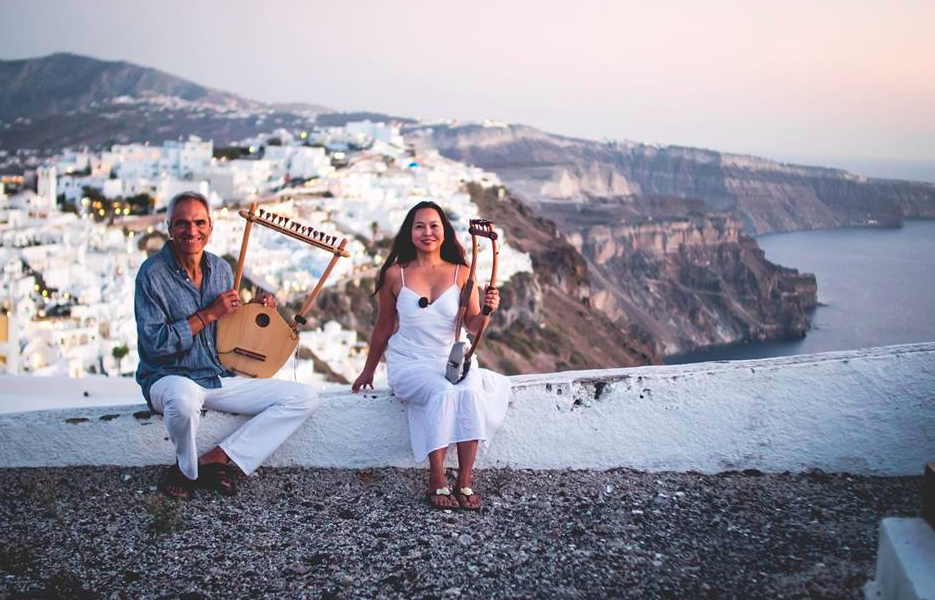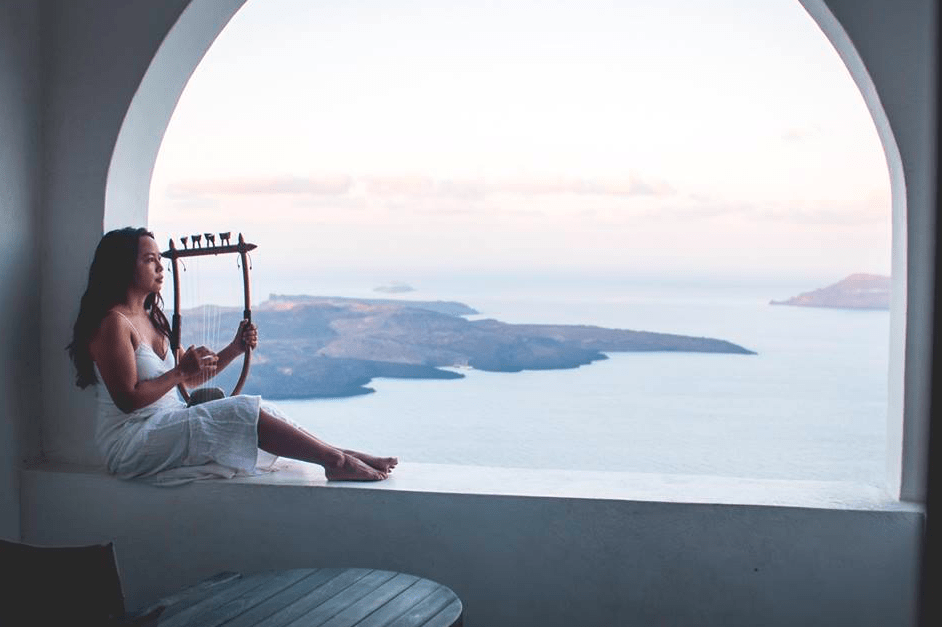
With four bachelor degrees under her belt, classicist/composer/musician/singer Bettina Joy De Guzman is a rising star in the ancient Greek music scene. Yes, you read that right, ancient Greek music. Although the only surviving musical composition from ancient Greece to currently exist in a complete form is the Epitaph of Seikelos, (which De Guzman has performed and recorded several times), academics and musicians around the world have been connecting to piece together the puzzle of how ancient Greek music actually sounded, and in more recent years a genre based on live and recorded performances has started to take shape, mainly due to popular demand.
Raised in the Philippines until the age of eight and then moving with her family to Orange County, California where she still lives today, De Guzman has since summer 2017 started travelling to Greece and other countries to collaborate with academics and musicians in producing and presenting the music that, through scientific as well as intuitive interpretation, they believe is the closest thing they can reproduce according to its creation millennia ago.
When she’s not travelling to perform through song and playing the Lyra (she has, she says, perhaps the largest collection of Lyras in the world) she teaches Latin and Ancient Greek, as well as music from those periods, to children aged 13-18 at her local high-school. “I have conducted lots of research and am carrying out ongoing research for the Getty Villa in Los Angeles, which is a replica of an ancient Herculean Villa and houses only ancient works, from the Cycladic era (2000BC) to Roman sculptures. I take my students there and show them around,” she says.
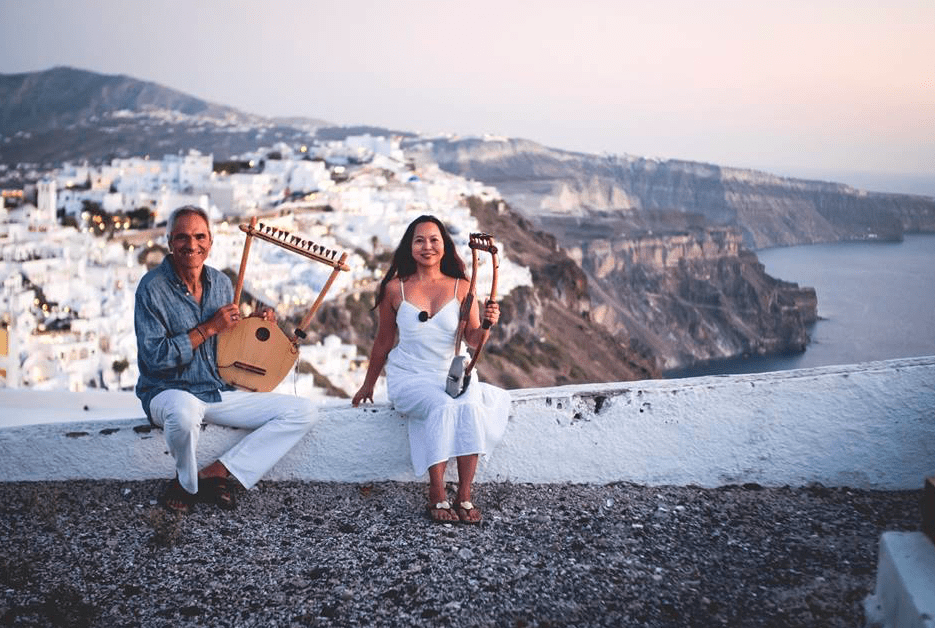
When I asked her how someone with such a highly academic background turned to music and song performance she says: “Music is a very natural expression of myself. I have been writing poetry and music since I was small, but to put it together in such a way became very exciting as I developed more knowledge on classic history as well as this new ancient music that’s been happening all over the world. My latest project with Greek composer, author and musician Nikos Xanthoulis, singing an interpretation of ancient texts while he plays the Lyra; we have done several recordings and performances together.”
Very recently De Guzman was in Thessaloniki to perform with Xanthoulis, after which she travelled to Santorini to perform with Thanassis Kleopas. Xanthoulis, who among his many accolades has studied ancient Greek music for 30 years, started actually playing it around eight years ago. On this transition, he says, “Since my studies in musical theory I wanted to develop a deeper understanding of the musical ideology of the ancient Greeks, which made up a basis of their very education. I studied ancient music theory texts but the greatest revelation for me was the seven-string Lyra. It was then that I discovered an entirely new world. My collaboration with Bettina is an ongoing joy both on a creative and scientific level. She is an exceptional musician, with a profound knowledge of classical literature and a highly collaborative spirit.”
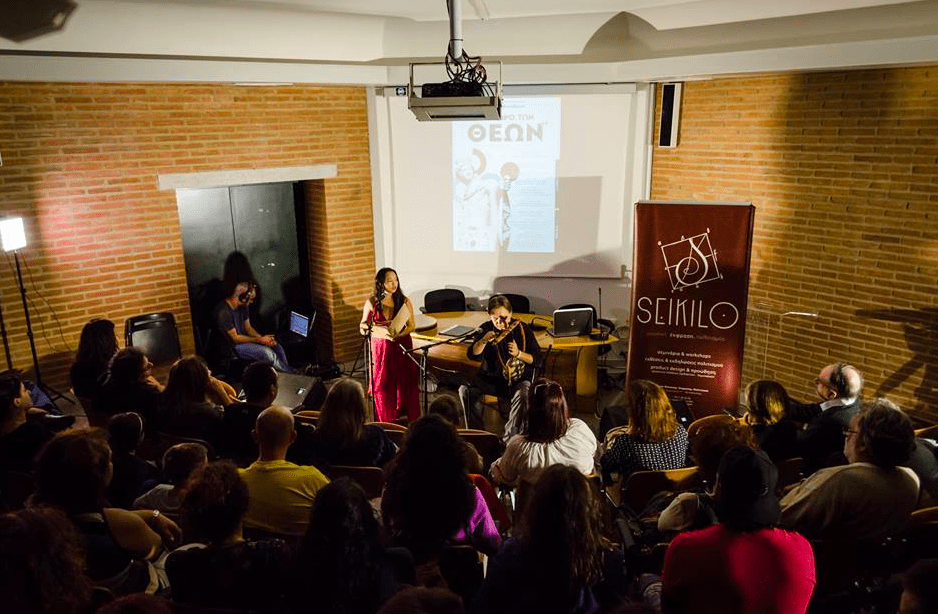
Seeing that there are no completed musical texts except the Epitaph of Seikinos, I ask De Guzman if the music she performs with Xanthoulis and other musicians as well as on her own is but a loose interpretation of how the music could have been, or as accurate as one can get based on the existing evidence. “I would say it’s more my/our interpretation of how it could have been, but we really don’t know what is there. We have fragments of this huge mosaic of possibilities and we only have small fragments of what was transmitted to people. How they felt about it is another completely different aspect! I’ve talked quite a bit with professor Armand D’Angourfrom Oxford University and Stefan Hegel from Vienna and they agree that we cannot know exactly. We know a lot more about how the instruments were constructed, and what the tones and rhythms, the modes or scales were - so starting from that you garner a pretty good idea of what could have been.”
When she became impassioned to turn her theoretical research into the sensory practice of playing, De Guzman began to search online for ancient Greek instruments. “I saw Michael Levy playing King David’s lyre, so I got one for myself and started practising on it. It was easy for me because I’d played the big pedal-harp and the Irish harp, the ukulele and piano,” she says. “Then I discovered the Luthieros musical instruments, by the Luthierios family, which owns the Seikinos Museum, and was very excited. Over the years I’ve bought around eight types of ancient Greek lyres - I’m pretty sure I have the largest collection of these!”
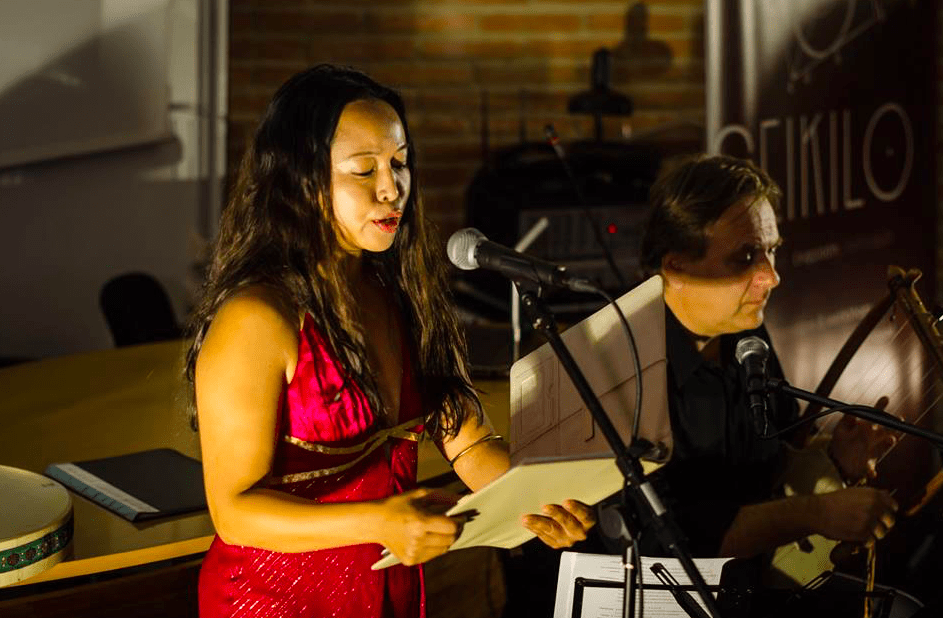
“I started composing almost immediately. For me, it was important to hear what the ancient literature sounded like. Because the poetry was not meant to sit there, the poetry was meant to be sung in the halls of kings, and so forth. People got very excited about my work. In only one year of my posting it on social media, the reaction has been tremendous - it shocked me! I started to record and then to travel to perform, as of last June - Athens was calling! I came to the National Archaeological Museum in Athens where I performed with Xanthoulis, who’s a very prolific composer and plays with ancient Greek theatre productions in Athens. It was very well received. And it keeps unfolding - very recently I was in Hawaii, and a professor of Classics there, Robert Lipman, turns out to be also a translator, who’d translated Nikos Xanthoulis’ version of Antigone by Sophocles - the connections in the world are so interesting, right?”
“All these new doorways keep opening in this area and it’s very exciting, all these people, many of them classicists, are interconnecting through ancient Greek music, all with the intent of making it a public work for the people. Yes, we have an academic approach in that we want to be certain the research is correct, but at the same time to make it accessible and enjoyable to people.”
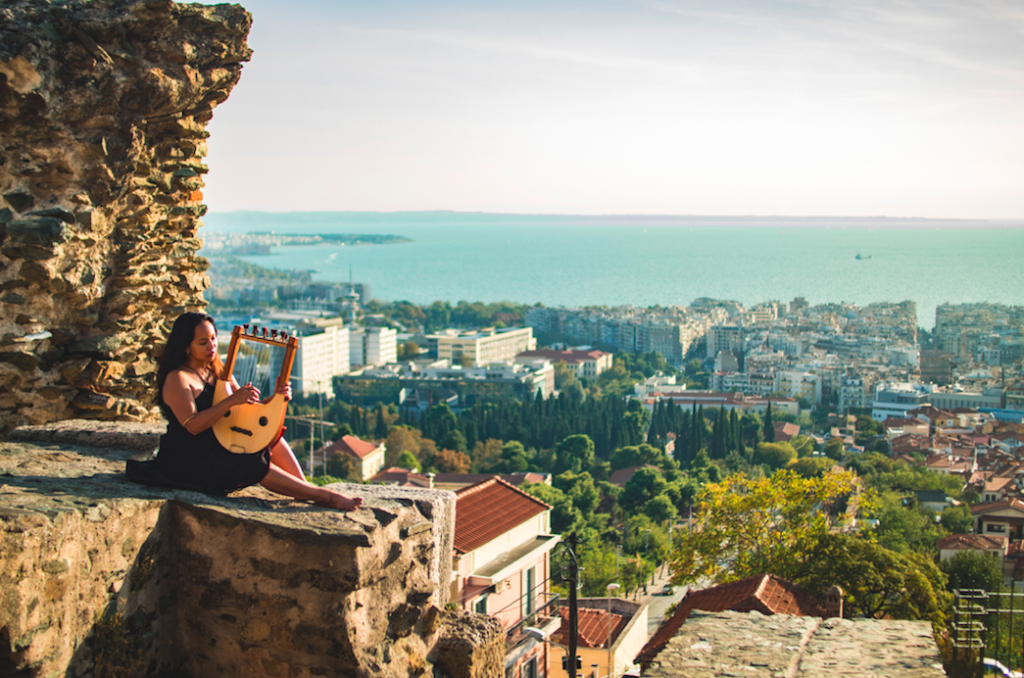
Ancient Greek music may not be as easy to listen to as smooth jazz, boppy pop or lyrical rock anthems, but it’s a fascinating experience to have nonetheless. Some, including myself, are enticed and overwhelmed by its mere return to the contemporary world, and there is great support for us to keep discovering more about our ancestors through the theory as well as avid practise of the sounds their poetry defined. With bright and ingenious individuals such as De Guzman to help mankind realise such feats, the experience can only serve to enrich our culture globally.
Find De Guzman's music online at the following links:
YouTube: youtube.com/channel
Spotify: open.spotify.com/artist
Soundcloud: soundcloud.com/bettina-joy-de-guzman
Before the Ruins. See what Ancient Knossos Palace looked like in its Glory Days

